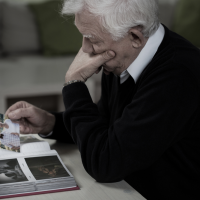Is There a Wrong Way to Grieve?
Many persons who have suffered loss ask the question, “Is there a wrong way to grieve?” This question is common, because we often assume that our grief experience must conform to a map we already have in our minds. It is important to remember that there is no one “right way” to grieve, and that our personal expectations are based on maps that are the generalized depictions of the journeys of others.
The truth is, there is no “wrong” way to grieve. Your personal grief journey will likely be a unique blend of different grief styles. Even when grieving the same loss, people express their individual grief at different places on the grief spectrum. One grieving style is not “better” than any other. Whether for ourselves or for others, honoring and validating the expressions and needs of the different grieving styles promotes individual healing.
The road that leads back to normalcy and recovery, will look different for everyone. This road can also change directions with very little notice. You never know how long it will take or what roadblocks will appear. The only thing you can do is accept that you’re grieving and do your best to deal with today’s problems. Although it might not seem like it, there is an end to this journey and you’ll get there soon.
Know that we continue to pray for and think about you, and all of your loved ones. We hope you will find this to be encouraging and helpful to you. If you would like to speak to someone personally, please do not hesitate to contact our Bereavement Coordinator, Thomas Schwartz. He can be reached at 918-994-4807. God bless and keep you!


